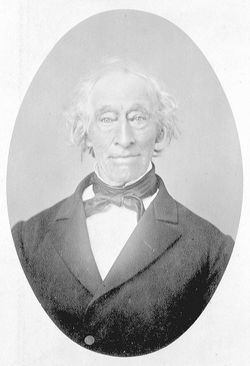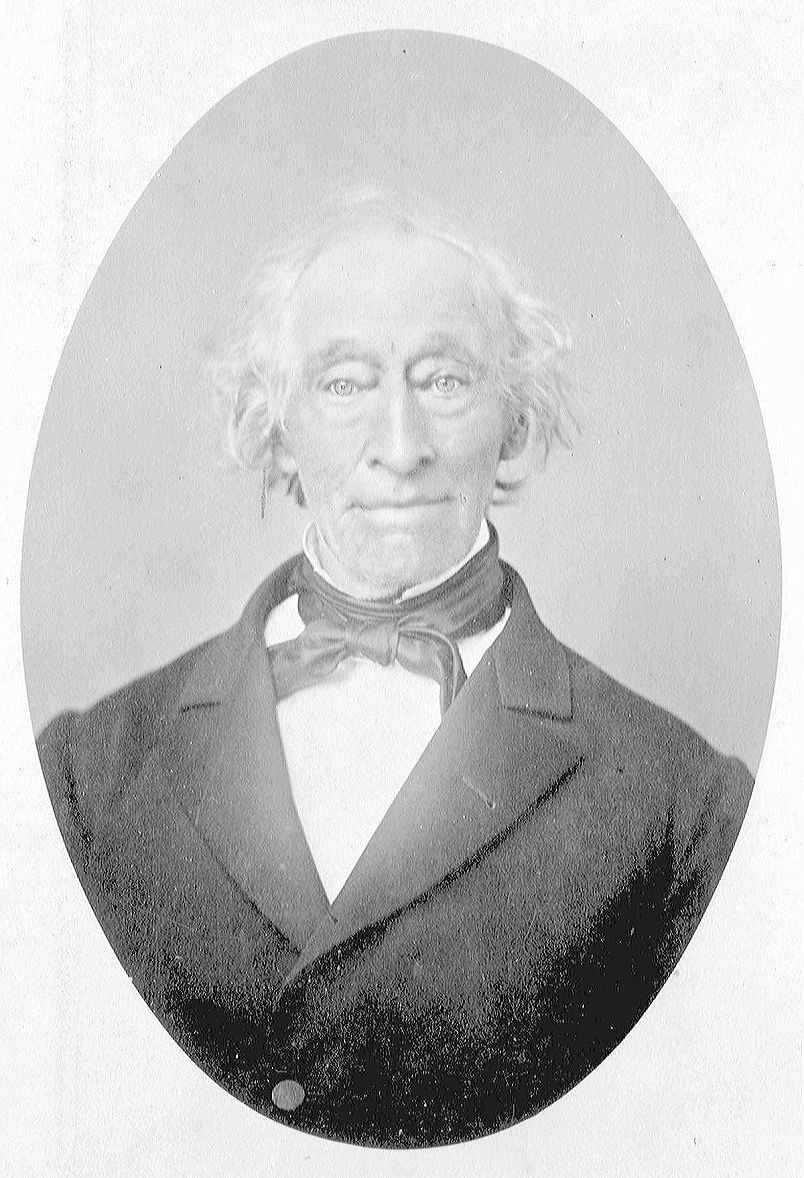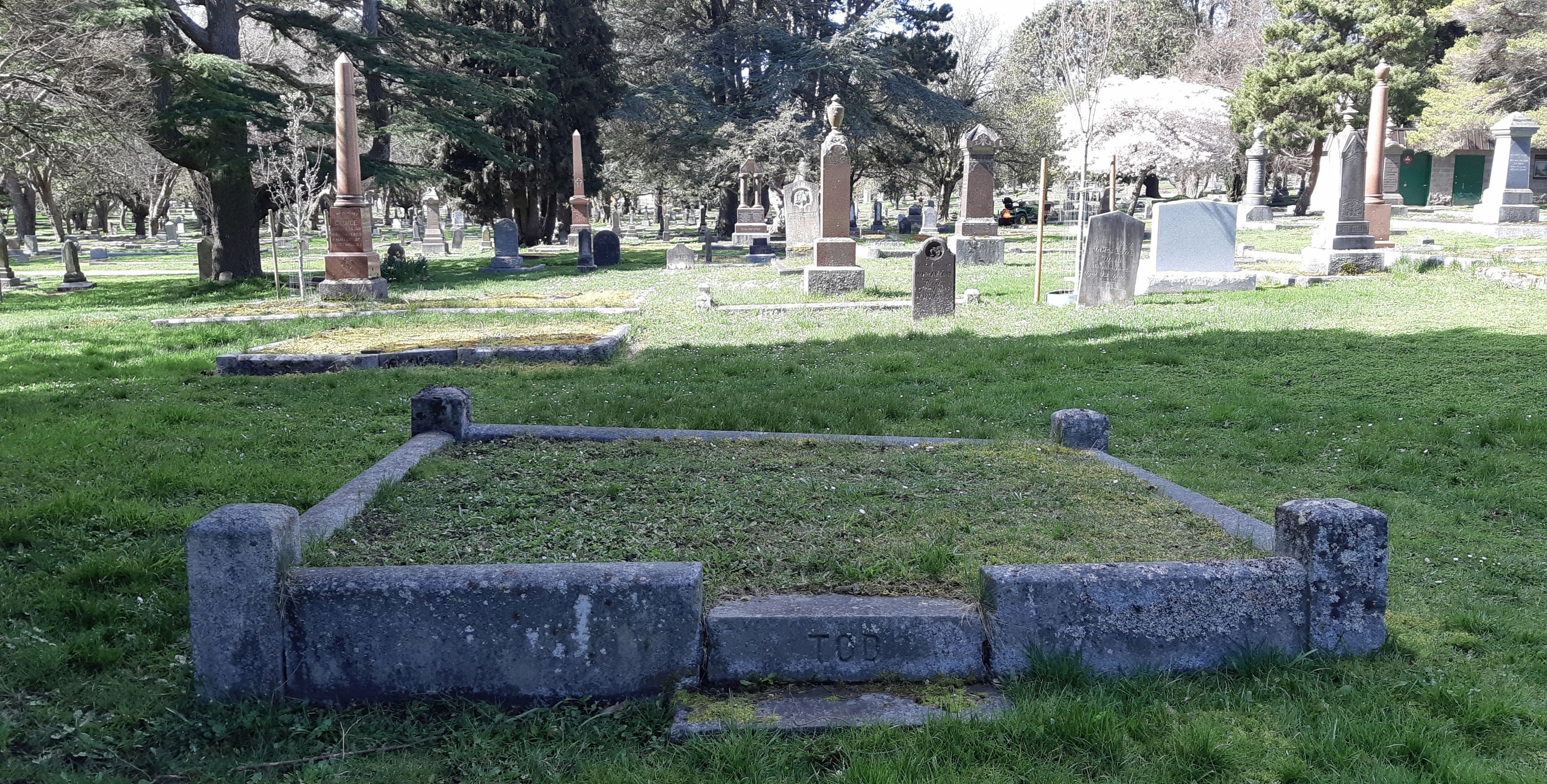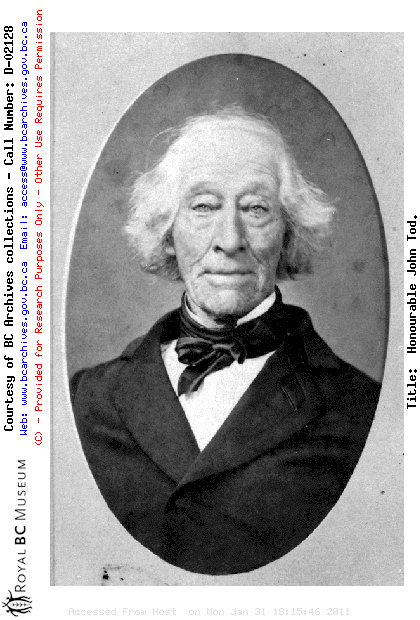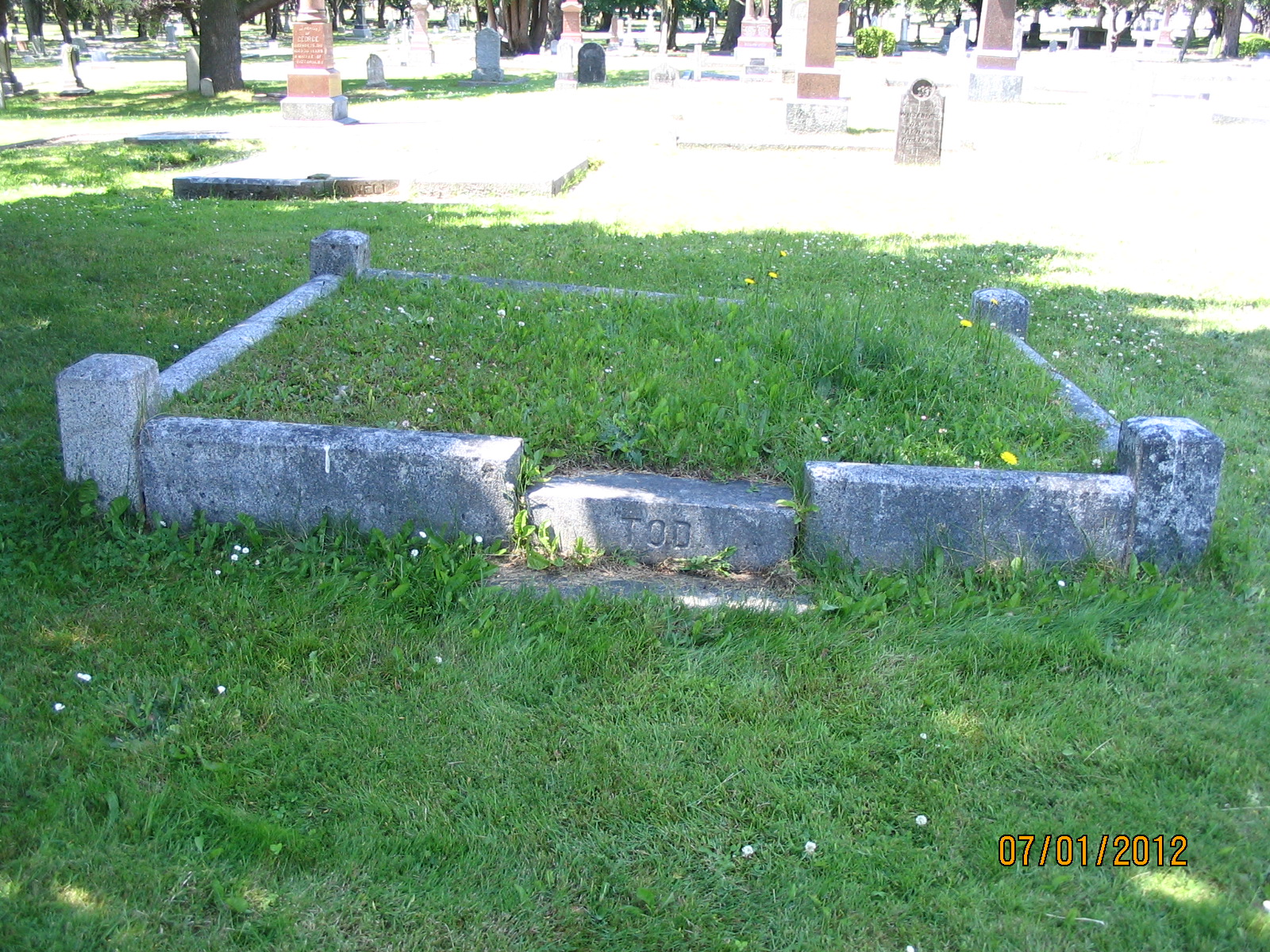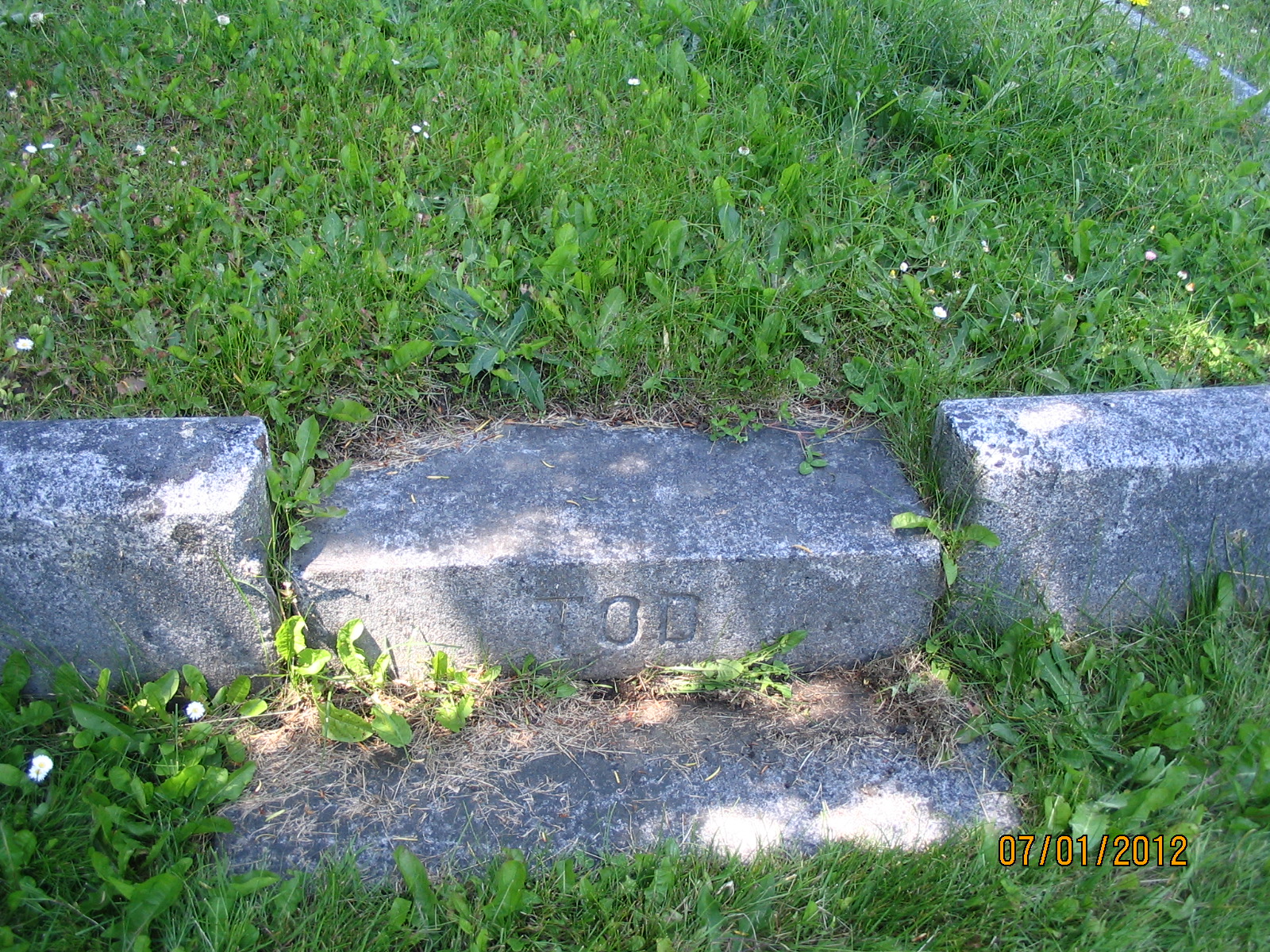John Tod was the son of a clerk in the cotton-printing industry. In 1811 he joined the Hudson's Bay Company and sailed with other apprentices from Stornoway to York Factory (Manitoba) in the chartered ship Edward and Ann. From 1811 to 1817 Tod was stationed in the Severn District in the vicinity of Hudson Bay. He was at Trout Lake (now in Northwest Terriotry) in 1814 when he was promoted clerk; the following year he was placed in charge of Severn House. In 1818 he was posted to the Island Lake District (Manitoba), remaining there until the end of outfit 1822–23.
Tod was posted to the New Caledonia District in 1823 and made the long overland journey from York Factory to McLeod Lake on the west side of the Rockies that same year.
Tod joined James Murray Yale* at Fort George (Prince George, B.C.) on the Fraser River, spending a year with him before settling at Fort McLeod. During the nine years at Fort McLeod, Tod found time to read the many good books he discovered there. He also enjoyed the companionship of "the singing girl," "without whom life in such a wretched place . . . would be altogether insupportable."
Having "experienced much privation in New Caledonia which . . . injured his health," Tod was recalled to Nelson River in the York Factory District where in 1834 he received his commission as chief trader and was granted a year's leave of absence. He sailed for England from Hudson Bay in the company's vessel Prince Rupert and on the voyage he met Miss Eliza Waugh, a governess from the Red River District. Shortly after reaching England they were married.
Returning to Rupert's Land by way of New York and Canada early in 1835, the Tods apparently spent the 1835–36 season in the Red River District awaiting a posting. They then moved to Island Lake where Tod took charge of the post in 1836–37. By 1837 Eliza had suffered a mental breakdown and Tod was obliged to take her to relatives in Wales. When he returned to North America he was again posted to New Caledonia and traveled to Fort Vancouver (Vancouver, Wash.) in the autumn of 1838. Before proceeding to Fort Alexandria (Alexandria, B.C.) on the Fraser River on the border of the Cariboo country, Tod spent a profitable time at the company's farm in the fertile Cowlitz valley.
From 1839 to 1842 Tod served at Fort Alexandria, moving temporarily to Thompson's River Post (Kamloops) after the murder of Samuel Black in 1841. In August 1842 Tod took formal charge of that post. Under his supervision new buildings on the west bank of the Thompson River were completed and old fort was abandoned.
In 1849 Tod obtained a leave of absence on account of ill health and moved to Fort Nisqually on Puget Sound; while there he substituted for Chief Trader William Fraser Tolmie. Later that same year he crossed Juan de Fuca Strait to Fort Victoria and selected 100 acres of land at Oak Bay for a farm. On furlough from 1850 to 1852, Tod officially retired from the company on 1 June 1852 and settled at Oak Bay. On 27 Aug. 1851 Governor Richard Blanshard* had nominated James Douglas, James Cooper*, and John Tod to the Legislative Council of Vancouver Island. All three took the oath of allegiance and their seats at its first session three days later. Tod served until his resignation in October 1858.
In character Tod was a rough diamond, unconventional and radical. Thomas Simpson described him as a man "of excellent principle, but vulgar manners." Yet he was well read and able to play the flute as well as the fiddle. His appreciation of nature and his powers of observation are demonstrated in his letters as well as in his "Career of a Scotch boy," where he reveals himself as a good raconteur. In his correspondence with his friend Edward Ermatinger, Tod unfolds his love of family, his hopes, his disappointments, and his moral and religious convictions. Towards the end of a long life he became a spiritualist.
Tod's family life was possibly more unconventional than that of most fur-traders. His first country wife was Catherine Birstone in the York Factory area and they had a son James about 1818, and there was "the girl who used to sing at McLeod's Lake" who bore him at least one daughter. Emmeline, who became the wife of William Henry Newton, was the only child of his marriage to Eliza Waugh. He and Sophia Lolo of Thompson's River Post, thought to be the daughter of Jean-Baptiste Lolo*, had seven children. John and Sophia were not formally married until 1863, news of Eliza's death in 1857 having been much delayed in reaching Victoria.
The house that Tod built in 1851 on his farm at Oak Bay has been designated a heritage house. A creek, a rock, an inlet, and a mountain all commemorate his name.
John Tod was the son of a clerk in the cotton-printing industry. In 1811 he joined the Hudson's Bay Company and sailed with other apprentices from Stornoway to York Factory (Manitoba) in the chartered ship Edward and Ann. From 1811 to 1817 Tod was stationed in the Severn District in the vicinity of Hudson Bay. He was at Trout Lake (now in Northwest Terriotry) in 1814 when he was promoted clerk; the following year he was placed in charge of Severn House. In 1818 he was posted to the Island Lake District (Manitoba), remaining there until the end of outfit 1822–23.
Tod was posted to the New Caledonia District in 1823 and made the long overland journey from York Factory to McLeod Lake on the west side of the Rockies that same year.
Tod joined James Murray Yale* at Fort George (Prince George, B.C.) on the Fraser River, spending a year with him before settling at Fort McLeod. During the nine years at Fort McLeod, Tod found time to read the many good books he discovered there. He also enjoyed the companionship of "the singing girl," "without whom life in such a wretched place . . . would be altogether insupportable."
Having "experienced much privation in New Caledonia which . . . injured his health," Tod was recalled to Nelson River in the York Factory District where in 1834 he received his commission as chief trader and was granted a year's leave of absence. He sailed for England from Hudson Bay in the company's vessel Prince Rupert and on the voyage he met Miss Eliza Waugh, a governess from the Red River District. Shortly after reaching England they were married.
Returning to Rupert's Land by way of New York and Canada early in 1835, the Tods apparently spent the 1835–36 season in the Red River District awaiting a posting. They then moved to Island Lake where Tod took charge of the post in 1836–37. By 1837 Eliza had suffered a mental breakdown and Tod was obliged to take her to relatives in Wales. When he returned to North America he was again posted to New Caledonia and traveled to Fort Vancouver (Vancouver, Wash.) in the autumn of 1838. Before proceeding to Fort Alexandria (Alexandria, B.C.) on the Fraser River on the border of the Cariboo country, Tod spent a profitable time at the company's farm in the fertile Cowlitz valley.
From 1839 to 1842 Tod served at Fort Alexandria, moving temporarily to Thompson's River Post (Kamloops) after the murder of Samuel Black in 1841. In August 1842 Tod took formal charge of that post. Under his supervision new buildings on the west bank of the Thompson River were completed and old fort was abandoned.
In 1849 Tod obtained a leave of absence on account of ill health and moved to Fort Nisqually on Puget Sound; while there he substituted for Chief Trader William Fraser Tolmie. Later that same year he crossed Juan de Fuca Strait to Fort Victoria and selected 100 acres of land at Oak Bay for a farm. On furlough from 1850 to 1852, Tod officially retired from the company on 1 June 1852 and settled at Oak Bay. On 27 Aug. 1851 Governor Richard Blanshard* had nominated James Douglas, James Cooper*, and John Tod to the Legislative Council of Vancouver Island. All three took the oath of allegiance and their seats at its first session three days later. Tod served until his resignation in October 1858.
In character Tod was a rough diamond, unconventional and radical. Thomas Simpson described him as a man "of excellent principle, but vulgar manners." Yet he was well read and able to play the flute as well as the fiddle. His appreciation of nature and his powers of observation are demonstrated in his letters as well as in his "Career of a Scotch boy," where he reveals himself as a good raconteur. In his correspondence with his friend Edward Ermatinger, Tod unfolds his love of family, his hopes, his disappointments, and his moral and religious convictions. Towards the end of a long life he became a spiritualist.
Tod's family life was possibly more unconventional than that of most fur-traders. His first country wife was Catherine Birstone in the York Factory area and they had a son James about 1818, and there was "the girl who used to sing at McLeod's Lake" who bore him at least one daughter. Emmeline, who became the wife of William Henry Newton, was the only child of his marriage to Eliza Waugh. He and Sophia Lolo of Thompson's River Post, thought to be the daughter of Jean-Baptiste Lolo*, had seven children. John and Sophia were not formally married until 1863, news of Eliza's death in 1857 having been much delayed in reaching Victoria.
The house that Tod built in 1851 on his farm at Oak Bay has been designated a heritage house. A creek, a rock, an inlet, and a mountain all commemorate his name.
Family Members
Advertisement
Advertisement
